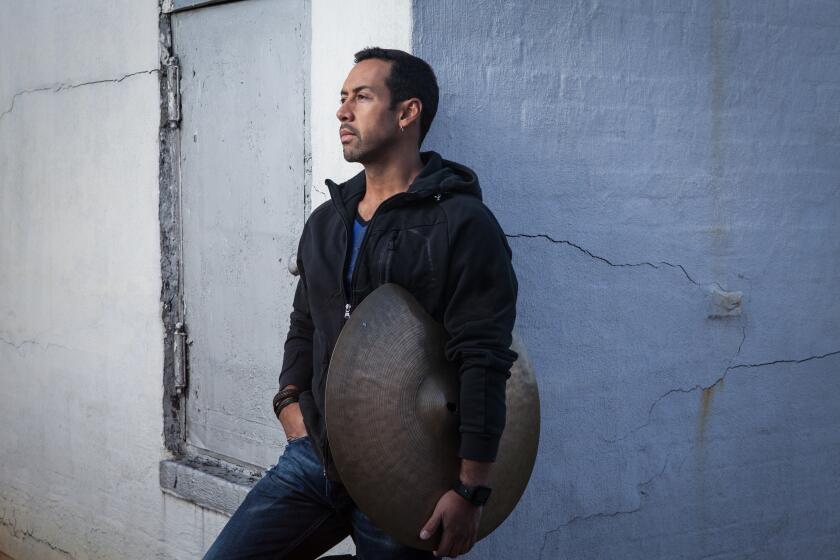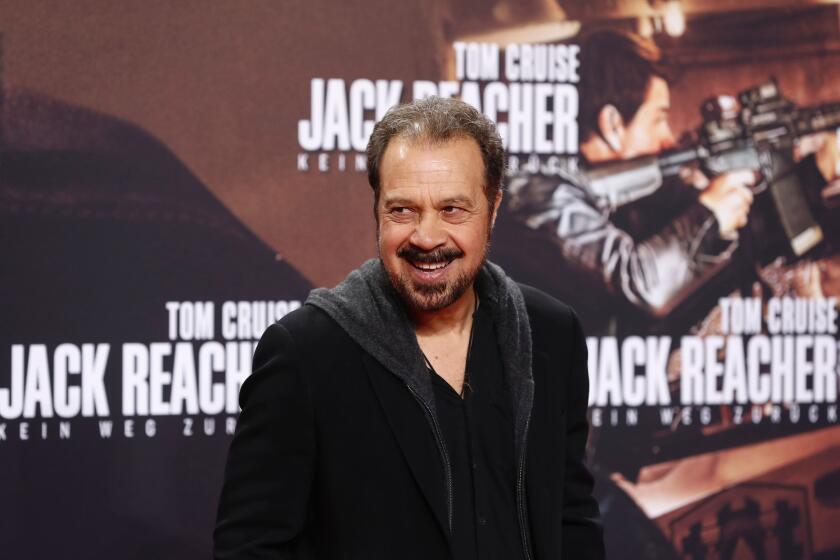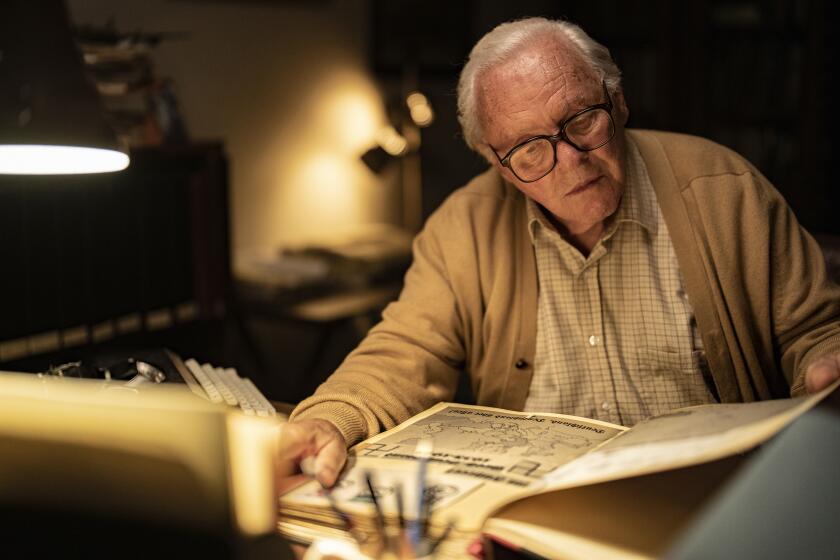Mental health in focus in GI Film Fest documentary ‘No Greater Love’
Two-day virtual event features documentary about soldiers’ struggles in Afghanistan and then at home
Amber Robinson was a photojournalist in the U.S. Army from 2000 to 2013 and did three tours in Afghanistan. For the last seven years, she has been engaged in a different kind of battle: restoring her mental health.
The Chula Vista resident, who moved to San Diego after she left the military, regularly attends several group therapy and individual therapy sessions to help her manage her post-traumatic stress disorder. She has struggled with anxiety and depression and fought the urge to end her life.
According to a 2019 U.S. Department of Veterans Affairs report, veterans are 1.5 times more likely to die by suicide than Americans who never served in the military. For female veterans, the risk factor is 2.2 times more likely.
“A large portion of the women in my therapy groups have attempted suicide. Before treatment, I was suicidal myself,” said Robinson, who is on the advisory committee of the GI Film Festival San Diego, which will be held virtually Oct. 1 and 2.
“In fact, my suicidal thoughts pushed me to get help. Not everybody does that. I know how it is for someone grappling with suicidal thoughts.
“You come to this crossroad – do you get help or use that razor in your makeup bag? I see how easy it could be to walk on that road. When I look back, it’s terrifying to know I was so close. Other comrades who took the other road are no longer with us.”
According to a July 2020 article in Military Times, more veterans died by suicide from 2005 to 2017 (nearly 79,000) than the total number of U.S. troops who died in 30 years of war in Vietnam, Iraq and Afghanistan (about 65,000).
On Thursday at 7 p.m., the GI Film Festival San Diego will present “No Greater Love,” a documentary that follows soldiers during their deployment in Afghanistan and after their return. Chaplain Justin D. Roberts, who served six years in the military, brought his camera and documented his time spent with soldiers of the No Slack Battalion, 101st Airborne Division, in Afghanistan.
He also followed up with some of the soldiers who made it back. Together, they share their daunting struggles being home.
“We tried to be honest with our own issues and even those dealing with suicidal thoughts,” said Roberts, via email, from his Louisiana home in hurricane-ravaged Lake Charles.
“The struggle with suicide doesn’t go away as long as it is a secret,” he continued. “It takes friends to help you through it. And sometimes when you think you don’t have friends, just by reaching out for help, you usually find them. In my journey with the film, I’ve met so many veterans who are on a mission to help other veterans dealing with this issue, so no one is alone in this.”
Among them is none other than Robinson, a Bronze Medal recipient and an active advocate for veterans. This is her first year on the GI Film Festival’s advisory committee, but – through her work with the Veterans Museum in Balboa Park – she was involved in (and attended) the festival for four years.
Robinson is also senior vice president of The American History Theater, which she co-founded here in 2014 with Hal Berry, a Vietnam-era veteran and theater and history professor. The organization raises social awareness through cause-based theater. Robinson runs an annual workshop, Shout and Stomp, which uses modern dance and theater to encourage healing for veterans. Its next edition will be held, she hopes, in December.
For Robinson, “No Greater Love” had a deep and personal impact. Nine of her 10 years in the military were with combat brigade teams, like the one featured in “No Greater Love,” and she served in the same battlespace.
“I make it my business to watch all the documentaries about Afghanistan, which is still a part of my heart,” she said. “No movie has brought me back in the way this one did. I haven’t seen the story told from the inside like that – it’s from a soldier’s point of view.
“It has a feeling of hope because the documentary (reunites) the veterans after they come back. The chaplain brings all these soldiers who were in Afghanistan to a church. That’s a good place for solace, whether you’re religious or not. They come together and talk so honestly about therapy, feelings and growing from their experiences. All of that is hopeful. It’s still hard but they’re better and staying connected to each other.”
When Roberts left the military in 2015, he was suffering from depression and PTSD. He wanted to reconnect with members of his old unit to see how they were processing the war’s aftereffects.
“The solutions to your own problems are often found with other people who have been through similar problems,” Roberts said. “A good bit of the insights my guys shared helped me in dealing with my own issues.
“Being open about your experiences is tough, but these guys are willing to die to help out their buddies. So being open and honest wasn’t a bridge too far.”
Wood is a freelance writer.
GI Film Festival San Diego Virtual Showcase
When: 5 and 7 p.m. Oct. 1 and 2
Admission: $10 per screening
Tickets and more information: gifilmfestivalsd.org
The films
5 p.m. Thursday: “Rescue Men: The Story of the Pea Island Lifesavers.” This documentary feature follows the daring all-Black lifeguard station in North Carolina from 1880 to 1947. Plus the short “The Rifleman’s Violin.”
7 p.m. Thursday: “No Greater Love.” (See story above.)
5 p.m. Friday: “She Wore Silver Wings” and “In Their Own Words: The Tuskegee Airmen.” These two documentary shorts tell the true stories of the World War II Women Airforce Service Pilots (31 minutes) and the first African-American pilots of the U.S. Army Air Forces (44 minutes).
7 p.m. Friday: “The Donut Dollies.” In this documentary feature, two “donut dollies” look back on their work in Vietnam cheering up the troops.
Get U-T Arts & Culture on Thursdays
A San Diego insider’s look at what talented artists are bringing to the stage, screen, galleries and more.
You may occasionally receive promotional content from the San Diego Union-Tribune.





